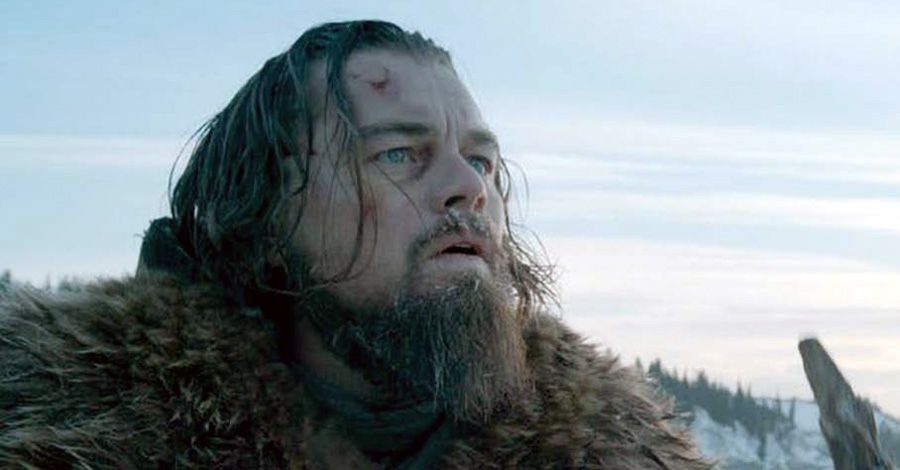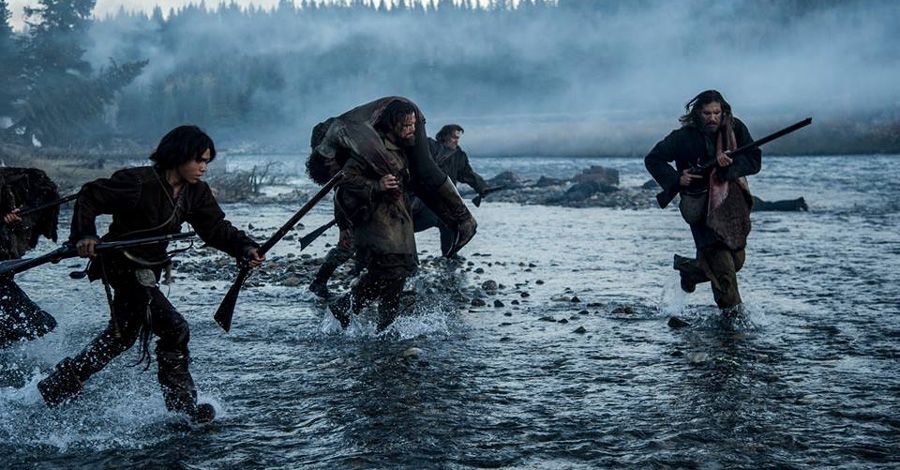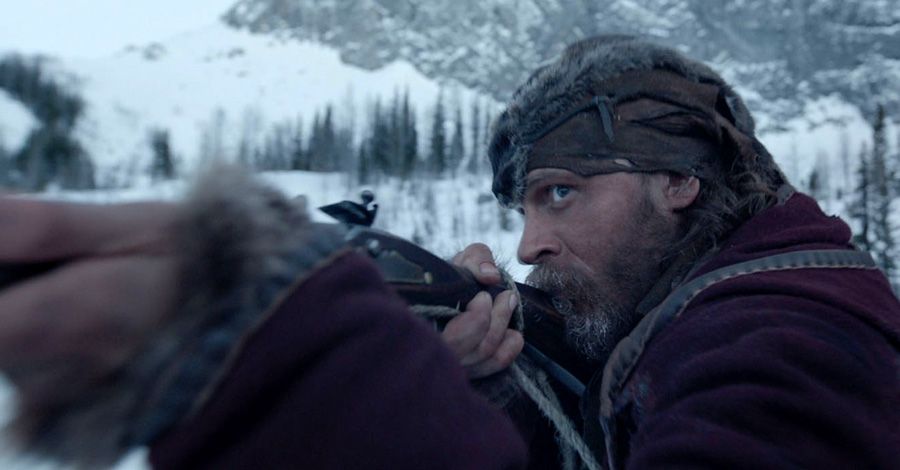Moments after "The Revenant" was first screened for East Coast critics, Twitter was flooded with praise for cinematographer Emmanuel Lubezki and leading man Leonardo DiCaprio. Oscar predictions followed, insisting director Alejandro González Iñárritu's follow-up to "Birdman" would bring an end to DiCaprio's Susan Lucci-like losing streak. So, you better believe my expectations were high when I saw the lauded drama less than 24 hours later.
But while "The Revenant" does deliver a hard-hitting story of survival and revenge unlike few I've had the pleasure to see, it ultimately bungles its brilliance, forgetting that sometimes more is too much.
Set in the untamed Dakota Territory of 1823, "The Revenant" begins with a battle so bloody it recalls the shock and awe of "Saving Private Ryan." A troop of soldiers hunting beaver is ambushed by Native Americans seeking a member of their tribe abducted by white men. The serenity of the soldiers' campsite is ripped to shreds as arrows tear through the air with a whistle, and land in flesh with a sickening thud and squish. There's a lot of graphic violence in the film, but what brings home its grotesqueness is the impeccable sound design, which fills your ears with the reality of tearing flesh, snapping bones and gurgling blood.
Only 10 men out of the original 45 live past the harrowing attack. Hugh Glass (DiCaprio) and his teen "half-breed" son Hawk (Forrest Goodluck) serve as scouts because of their familiarity with the terrain. Glass is ferociously protective of his boy, especially against racist, rage-filled fools like the half-scalped trapper John Fitzgerald (Tom Hardy, utilizing another almost-indecipherable accent). Thankfully, they're led by a compassionate and honorable captain, Andrew Henry (Domhnall Gleeson), so when Glass is horrifically mauled by a mother bear, he's not just left for dead. Unfortunately, however, days of dragging Glass' paralyzed body pushes Henry to entrust him to the care of Fitzgerald, Hawk and naïve but kind recruit Jim Bridger ("We're the Millers" star Will Poulter). As you might guess, things go from bad to nightmarish from there. Hawk is slain and Glass is left for dead, beginning the film's true focus: Glass' tenacious quest for vengeance against the man who murdered his beloved son.
Even warned of how gruesome and grim "The Revenant" would be, I was nonetheless stunned, sequence after sequence, by the brutality and cruelty of fortune Glass endures. But there's something compelling and even inspiring in watching him assess his situation with a rational eye, and do whatever it takes to survive. It's kind of like the plucky astronaut of "The Martian," minus any humor. One particularly impactful scene has Glass MacGyver-ing a way to patch his throat, which is roughly healed but still spotted with holes in the wake of a bear attack. To be able to drink water, he needs it shut, so he cauterizes it with fire and gunpowder.
Because of the damage to his throat, Glass is largely robbed of his ability to speak, and because he spends much of the movie alone, there's little need for him to talk. Therefore, the performance is gruelingly physical, demanding DiCaprio to hurl himself across boulders, eat dirt and raw animal flesh, tackle grisly (and grizzly) stunts, and breathe constantly with a ragged, rough determination. His face hidden with a thick, scraggly beard, his mega-watt grin replaced with yellowed dentures, this is the kind of transformative performance the Academy goes nuts for. DiCaprio delivers one of the most mind-blowing performances of the year. Better still, he's surrounded by supporting players who bring raw grit and emotional complexity to thinly written roles.
Gleeson is the picture of Wild West respectability, and you see the pain streak his face as he's left to make no-win choices to preserve the lives of as many of his men as possible. I chuckled when I recognized Poulter, but the comedy kid makes a fine dramatic turn here as the bullied and heartbroken Bridger. Goodluck is heart-wrenching as Glass' protective-to-a-fault son. Yet Hardy's is the most fascinating portrayal. On paper, you can see where Fitzgerald could come off as little more than a greedy coward, but the consummate character actor layers in regret, envy, moral ambiguity and a relatable drive to survive to make for a villain that's as much a victim of bad fortune as Glass.
It's a just shame Iñárritu lets down his cast.
By slathering on indulgent touches, the director robs the film of the elegance and intensity it so richly won in its first two hours. He just doesn't know when enough is enough. Over the course of Glass' journey, the hero and the audience are assaulted with so much tragedy and horror that we hit a place where we can feel no worse for the character. But we're still far away from a beat that isn't baleful, even though there's nowhere else to go emotionally.
The cinematography is wondrous, with Lubezki capturing moments of nature's cruelty, big and small, from wide shots of wolves circling bison, to extreme close-ups of ants ganging up on their prey. There's so much natural beauty untouched by man -- and thereby a threat to him -- that shots in which Glass wonders through towering trees are enough to evoke awe. And movie lovers will marvel for decades over the masterful long take that loops through the opening ambush.
However, when filming smaller fights, Lubezki whips his camera -- albeit fluidly and ever in focus - -from one combatant to another, back and forth in a way that's technically impressive, but draws attention to itself, ripping the viewer out of the movie. A similar kick out of the story occurs twice when the camera gets so close to a starved and shivering DiCaprio that his breath fogs the lens, reminding us there is a lens.
That feeds into a finale that is tense, thrilling and fittingly gruesome, but also infuriatingly on the nose. At long last, Glass and Fitzgerald face each other. And after 150 minutes of silent looks and shaggy breaths being enough to communicate motivations, Hardy's villain tosses subtlety aside, flat-out explaining to the audience what Glass is feeling at this pivotal moment. Then, in the very last shot, DiCaprio's gaze shifts from melancholic mid-distance to the lens, as if to say, "Hello, there. Oscar please."
"The Revenant" opens on Dec. 25.



